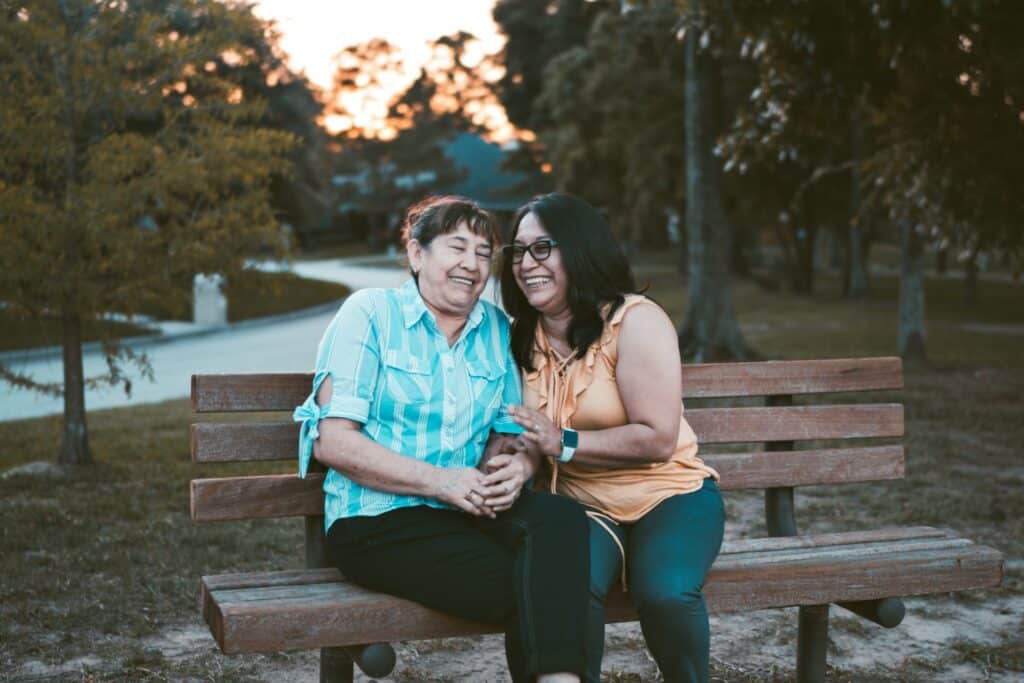
San Francisco has a vibrant recovery community, but many Adult Children of Alcoholics/Addicts (ACoA) still struggle with the lasting effects of growing up in a household impacted by substance abuse. In a city known for its progressive mental health resources, many ACoA find that therapy provides a safe space to untangle the patterns of their past, navigate relationship challenges, and build emotional resilience. Whether you’re dealing with perfectionism, codependency, or difficulties with trust, working with a therapist in San Francisco can help you address these challenges in a way that aligns with your personal healing journey.
Browse our Therapist Directory
Quick Navigation
- What Is ACoA?
- Common Challenges Faced by ACoA
- ACoA in San Francisco & California
- Common Mental Health Issues Among ACoA
- How Therapy Helps ACoA
- Types of Therapy for ACoA
- ACoA Through a Multicultural & Systems-Based Lens
- Next Steps
What Is ACoA?
Adult Children of Alcoholics/Addicts (ACoA) refers to individuals who grew up in families where one or both parents struggled with alcoholism or substance abuse. ACoA is a term commonly used in the field of addiction and recovery to describe the unique experiences and challenges faced by individuals who were raised in such environments. Many people find that therapy can assist with the unique issues commonly faced by Adult Children of Alcoholics/Addicts.
Common Challenges Faced by ACoA
Of course, everyone’s experiences are unique. Therapy is the best way to deal directly with your own unique challenges, strengths, needs, and goals. That said, ACoA often share common traits and experiences due to their upbringing, including:
Codependency
ACoA may develop codependent patterns of behavior, where they prioritize the needs of others above their own, have difficulty setting boundaries, and struggle with low self-esteem.
Family Roles
ACoA may adopt specific roles within their families to cope with the chaos and dysfunction caused by addiction. These roles can include the responsible caretaker, the family hero/overachiever, the scapegoat/rebel, or the lost child/isolator.
Emotional Challenges
Growing up in an alcoholic or addict family can lead to emotional difficulties such as anxiety, depression, fear of abandonment, or difficulties in forming and maintaining healthy relationships.
Trust and Intimacy Issues
ACoA may struggle with trust and intimacy due to broken trust, inconsistency, or neglect experienced in their family of origin. They may have difficulty forming close, healthy relationships and may fear being vulnerable.
Boundary Issues
ACoA may struggle with setting and maintaining boundaries, as they may have grown up in an environment with blurred or violated boundaries. This can lead to challenges in asserting their needs, saying no, or recognizing when others are overstepping their boundaries.
Difficulty with Expressing Emotions
ACoA may have difficulty identifying and expressing their emotions due to growing up in an environment where feelings were suppressed, ignored, or invalidated. This can contribute to emotional detachment or difficulty managing and expressing emotions effectively.
Perfectionism and Control
ACoA may develop perfectionistic tendencies or a need for control as a response to the unpredictable and chaotic environment of addiction. They may strive for perfection to gain a sense of control over their lives or to seek validation and approval from others.
Our San Francisco ACoA therapists understand the many nuanced ways in which these different tendencies impact individuals and want to help.
What Makes the ACoA Experience in San Francisco & California Unique?
What Makes the ACoA Experience in San Francisco & California Unique?
San Francisco and the broader California region have a long history of addiction recovery resources, from Alcoholics Anonymous’ deep roots in the Bay Area to modern trauma-informed therapy approaches. While this makes it a supportive place for healing, ACoA in San Francisco may face some unique challenges and opportunities, including:
A High-Achieving Culture & Perfectionism Pressure
San Francisco is known for its fast-paced, high-achievement culture, especially in industries like tech, finance, and entrepreneurship. Many ACoA already struggle with perfectionism and fear of failure due to their upbringing—living in a hyper-success-driven city can exacerbate those tendencies, making therapy essential for finding balance.
Alternative & Holistic Healing Options
California is a leader in alternative healing modalities, including mindfulness-based therapy, somatic healing, and psychedelic-assisted therapy. Many ACoA in San Francisco are drawn to integrative approaches that combine traditional therapy with meditation, yoga, EMDR, or group healing.
A Thriving ACoA & Al-Anon Community
San Francisco has a large, active Al-Anon and ACA (Adult Children of Alcoholics) community. Many ACoA start their healing in these groups and later seek therapy for deeper, individualized healing. Working with a therapist familiar with both 12-Step support groups and trauma therapy can help bridge the gap between peer support and professional guidance.
Breaking Generational Cycles in an Evolving Social Landscape
Many ACoA in California struggle with reconciling family ties—whether navigating intergenerational trauma, cultural expectations, or decisions about family contact. San Francisco’s diverse, progressive mental health sceneprovides more options for ACoA to explore boundaries, reparenting, and healing in ways that align with their values.
Common Mental Health Issues Among ACoA
Adult Children of Alcoholics (ACoA) often experience a range of mental health issues due to their upbringing in families affected by alcoholism or addiction. This is not about pathologizing. Therapists recognize that not all ACoA will develop these conditions. With that in mind, the following are some common mental health issues that may be prevalent among individuals with an ACoA background:
Anxiety Disorders
ACoA may be more susceptible to developing anxiety disorders such as generalized anxiety disorder (GAD), social anxiety disorder, or panic disorder. Growing up in an unpredictable and chaotic environment can contribute to heightened anxiety levels and difficulties managing stress.
Depression
ACoA may be at a higher risk of developing depression. The emotional turmoil, instability, and negative experiences associated with growing up in an alcoholic or addict family can contribute to feelings of sadness, hopelessness, and low self-worth.
Post-Traumatic Stress Disorder (PTSD)
ACoA may experience symptoms of PTSD due to exposure to traumatic events or ongoing traumatic experiences within the family system. Witnessing or experiencing substance abuse, neglect, violence, or other adverse situations can lead to the development of PTSD symptoms.
Substance Use Disorders
ACoA may be more prone to developing their own substance use disorders later in life. The combination of genetic factors, learned behaviors, and coping mechanisms acquired during their upbringing can increase the risk of using substances as a way to cope with emotional pain or to replicate familiar patterns.
Codependency
Codependency is a common issue among ACoA, characterized by excessive reliance on others for self-worth, difficulty setting boundaries, and a tendency to prioritize others’ needs over their own. Codependency can lead to challenges in relationships, low self-esteem, and difficulties with personal autonomy.
Relationship Issues
ACoA often face challenges in forming and maintaining healthy relationships. Trust issues, difficulties with intimacy, fear of abandonment, and patterns of unhealthy attachment can impact their ability to establish fulfilling and stable connections with others.
Low Self-Esteem and Self-Worth Issues
Growing up in an environment affected by addiction can contribute to a diminished sense of self-worth and low self-esteem. ACoA may struggle with feelings of inadequacy, self-doubt, and a constant need for external validation.
Impaired Emotional Regulation
ACoA may have difficulties regulating their emotions effectively. They may experience intense emotional reactions, mood swings, or have difficulty identifying and expressing their emotions in a healthy manner.
Browse our Therapist Directory for ACoA Therapists
How Therapy Helps ACoA
Therapy can be highly beneficial for Adult Children of Alcoholics (ACoA) in various ways. Therapists with expertise in addiction, trauma, family systems, and codependency can provide targeted interventions to support ACoA in their healing and personal growth journey. Here are some ways in which therapy can help ACoA:
Validation and Emotional Support
ACoA often carry the burden of unresolved emotions and past traumas. Therapy provides a safe and non-judgmental space for individuals to express their experiences, thoughts, and feelings related to their upbringing. Therapists can offer validation, empathy, and emotional support, which can be deeply healing.
Understanding and Processing Childhood Experiences
Therapy can help ACoA gain insight into the impact of their upbringing on their current thoughts, emotions, and behaviors. Therapists can help individuals explore and process childhood experiences, recognize patterns, and understand how these experiences have shaped their beliefs and coping strategies.
Healing from Trauma
ACoA may have experienced various forms of trauma during their upbringing. Therapists trained in trauma-focused approaches, such as Eye Movement Desensitization and Reprocessing (EMDR) or Trauma-focused Cognitive Behavioral Therapy (TF-CBT), can assist in processing traumatic memories, reducing distressing symptoms, and promoting healing.
Addressing Codependency
Therapy can help ACoA identify and address codependent patterns of behavior that developed as coping mechanisms in their families of origin. Therapists can assist in setting boundaries, developing self-care practices, and cultivating healthy relationships based on mutual respect and reciprocity.
Building Self-Esteem and Self-Worth
Growing up in an alcoholic or addict family can significantly impact self-esteem and self-worth. Therapy can help ACoA develop a more positive and accurate self-perception, challenge negative self-beliefs, and cultivate self-compassion and self-acceptance.
Developing Healthy Coping Strategies
Therapy equips ACoA with tools and strategies to cope with challenges and triggers in a healthier manner. Therapists can teach skills for emotional regulation, stress management, assertive communication, and problem-solving, empowering individuals to respond to difficulties in more adaptive and effective ways.
Nurturing Healthy Relationships
ACoA may face challenges in forming and maintaining healthy relationships due to their upbringing. Therapy can help individuals explore relational patterns, develop skills for communication, conflict resolution, and boundaries, and foster healthier connections with others.
Breaking Generational Patterns
Therapy can help ACoA break intergenerational cycles of addiction and dysfunction by providing a space to explore and understand family dynamics. Therapists can guide individuals in developing new perspectives, behaviors, and parenting strategies to create a healthier and more supportive environment for themselves and their families.
Types of Therapy for ACoA
When it comes to therapy for Adult Children of Alcoholics (ACoA), various approaches can be beneficial. Here are some types of therapy commonly used and effective for addressing the specific challenges and needs of ACoA:
Trauma-Focused Therapy
Many ACoA have experienced trauma or adverse childhood experiences. Therapies specifically designed to address trauma, such as Eye Movement Desensitization and Reprocessing (EMDR), Trauma-focused Cognitive Behavioral Therapy (TF-CBT), or Sensorimotor Psychotherapy, can be helpful in processing traumatic memories, reducing distressing symptoms, and promoting healing from past trauma.
Cognitive-Behavioral Therapy (CBT)
CBT focuses on identifying and challenging negative thought patterns and behaviors. For ACoA, CBT can help individuals recognize and challenge self-defeating beliefs developed in childhood, develop healthier coping strategies, and improve problem-solving skills. CBT can also address issues such as anxiety, depression, and codependent patterns of behavior.
Dialectical Behavior Therapy (DBT)
DBT combines elements of cognitive-behavioral therapy with mindfulness practices. It can be effective for ACoA in developing emotional regulation skills, distress tolerance, interpersonal effectiveness, and mindfulness techniques. DBT can help individuals manage intense emotions, improve self-esteem, and establish healthier relationships.
Psychodynamic Therapy
Psychodynamic therapy focuses on exploring the unconscious influences and underlying dynamics that contribute to present-day difficulties. This approach can be valuable for ACoA in gaining insight into early family dynamics, attachment patterns, and the impact of their upbringing on their current thoughts, feelings, and behaviors. Psychodynamic therapy can help uncover unresolved issues and promote healing and personal growth.
Group Therapy
Group therapy, such as Adult Children of Alcoholics (ACA) or Al-Anon meetings, provides ACoA with a supportive community of individuals who have had similar experiences. Group therapy offers the opportunity to share stories, gain support, receive feedback, and learn from others who have faced similar challenges. It can foster a sense of belonging, reduce feelings of isolation, and provide a space for learning and growth.
Family Systems Therapy
Family systems therapy focuses on exploring the dynamics within the family unit. It can be helpful for ACoA in understanding how their family system influenced their development, relationships, and patterns of behavior. Family systems therapy can help individuals set boundaries, improve communication, and address unresolved family issues.
Emotion-Focused Therapy (EFT)
EFT focuses on understanding and processing emotions to promote healing and improve relationships. ACoA may benefit from EFT to explore and work through complex emotions related to their upbringing, develop emotional awareness, and enhance their ability to express emotions effectively and form healthy connections with others.
Our San Francisco therapists utilize a variety of different modalities based on your specific needs.
ACoA Through a Multicultural & Systems-Based Lens
How Culture & Family Systems Shape the ACoA Experience
While many Adult Children of Alcoholics/Addicts (ACoA) share common struggles, their experiences are also deeply shaped by culture, family dynamics, and societal systems. Understanding ACoA through a multicultural and systems-based lens allows us to recognize the unique challenges and strengths that different communities bring to the healing process.
1. Cultural Expectations & Family Roles
- In some cultures, family loyalty and secrecy around addiction may discourage open discussions about pain or seeking outside support.
- Some ACoA are raised in collectivist cultures where family duty outweighs individual well-being, making boundary-setting even more complex.
- Others may come from high-achieving immigrant families where substance use was hidden but emotional neglect, perfectionism, and pressure to succeed created deep-seated ACoA patterns.
2. Intergenerational Trauma & Historical Oppression
- Many BIPOC communities, as well as LGBTQ+, immigrant, and marginalized groups, experience higher rates of trauma & systemic oppression that intersect with addiction’s impact on family structures.
- Historical and systemic inequalities (racism, forced displacement, economic instability) compound the effects of addiction, making recovery a more complex and layered experience.
- Healing as an ACoA may also involve unlearning generational coping mechanisms that were necessary for survival in past generations.
3. Religion, Spirituality, & Healing Approaches
- Some religious communities may view addiction through a moral lens, leading ACoA to feel guilt or shame for struggling with its effects.
- Others may have strong spiritual traditions that shape their healing process—whether through faith-based recovery, ancestral practices, or community-driven support.
- Therapy that honors spiritual & cultural values can be more effective and affirming for many ACoA.
4. The Role of Community & Support Systems
- In many cultures, healing happens in community, not just individually. ACoA from these backgrounds may find that group therapy, culturally specific support spaces, or family-oriented healing work feels more aligned than traditional talk therapy alone.
- Some ACoA may struggle with conflicting feelings about seeking therapy if mental health stigma exists in their community.
Next Steps
Find a San Francisco ACoA therapist who is ready to work with you.
Some of our therapists are particularly well-suited to working with Adult Children of Alcoholics / Addicts. Browse our therapist directory to find the one that is right for you. Or call us today for more information.
Browse our Therapist Directory





